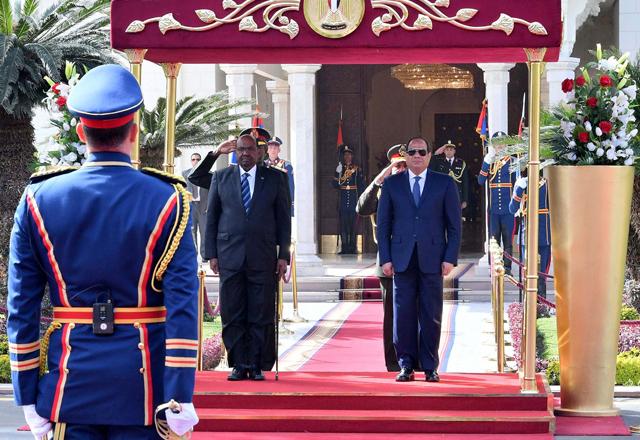You are here
Sudanese teacher dies in detention after protests, family members say
By Reuters - Feb 02,2019 - Last updated at Feb 02,2019

Sudanese protesters chant slogans during an anti-government demonstration in the capital Khartoum's twin city of Omdurman on Thursday (AFP photo)
KHARTOUM — A Sudanese school teacher died in detention after being arrested in connection with protests in the east of the country, members of his family said on Saturday.
The 36-year-old man was arrested at his home on Thursday after protests in the town of Khashm Al Qirba, the family members said, adding that security officials had told them he died of poisoning.
He had marks of being beaten on his body, the family said. The man's funeral took place on Saturday.
Security officials did not immediately respond to requests for comment.
Students, activists and other protesters have held almost daily demonstrations across Sudan since December 19, calling for an end to economic hardships and mounting a sustained challenge to President Omar Al Bashir's three decades in power.
Rights groups say at least 45 people have been killed in the protests, while the government puts the death toll at 30, including two security personnel.
Bashir has shown no sign of being prepared to concede any power and has blamed the protests on foreign agents, challenging his rivals to seek power through the ballot box.
The information ministry said on Tuesday Sudan's intelligence and security chief had ordered the release of all those detained during the protests. However, the next day security forces detained the daughter of opposition leader Sadiq Al Mahdi, her family said.
Bashir is wanted by the International Criminal Court over charges, which he denies, of masterminding genocide in the Darfur region. He has been lobbying to have Sudan removed from a list of countries, along with Syria, Iran and North Korea, that Washington considers state sponsors of terrorism.
That listing has deterred the influx of investment and financial aid that Sudan was hoping for when the United States lifted sanctions in 2017, economists say.
Sudan has been rapidly expanding its money supply in an attempt to finance its budget deficit. But that has caused spiralling inflation and a steep decline in the value of the country's currency on foreign exchange markets.
Related Articles
KHARTOUM — Dozens of journalists marched in Khartoum on Monday to demand an end to a crackdown on press freedom, eyewitnesses said, amidst t
KHARTOUM — A Sudanese vendor died on Sunday after riot police fired tear gas at an anti-government rally in the capital, medics said, a
KHARTOUM — Sudanese President Omar Al Bashir does little to hide his contempt for the young men and women who have been protesting for more


















